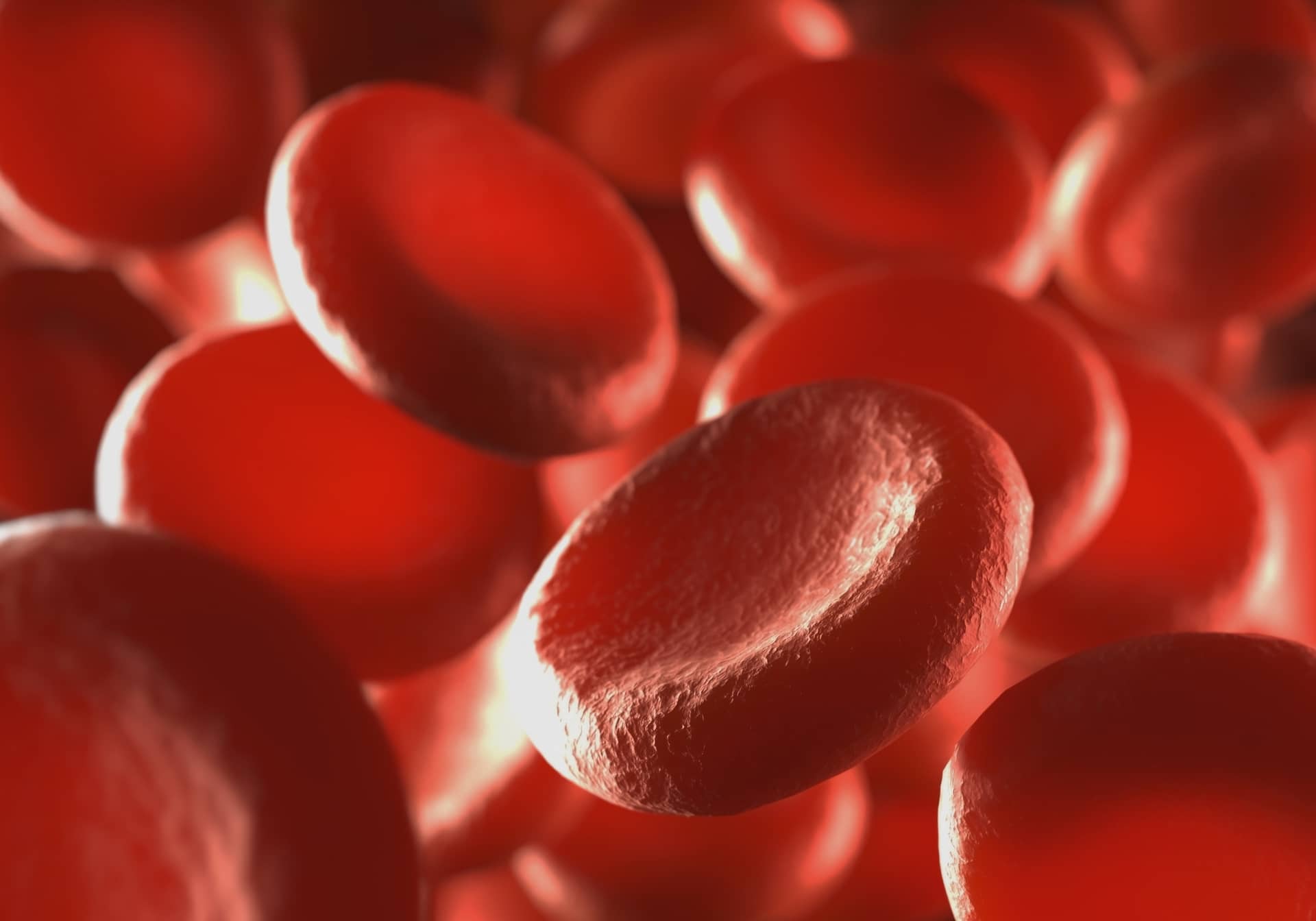
A condition affecting millions may be silently threatening your memory and brain health. While often overlooked or dismissed as a minor inconvenience, the impact of anemia goes far beyond fatigue or pale skin. Research reveals that this common blood disorder is linked to cognitive decline, memory loss, and even Alzheimer's disease. But what if treating anemia could be the key to preventing further damage to your brain? Discover how anemia may be a hidden danger to your mental clarity—and how you can protect yourself from its far-reaching effects.
Key Takeaways
-
Anemia is a common but often undiagnosed condition that can lead to cognitive issues, including memory loss and dementia.
-
Studies suggest that anemia doubles the risk for mild cognitive impairment (MCI) and worsens the prognosis for those suffering from Alzheimer’s disease.
-
Anemia can hinder brain recovery from traumatic injuries and may be inadvertently caused by medical tests, particularly during heart surgery.
Anemia: A Hidden Threat to Memory and Brain Health
More than three million Americans suffer from a red blood cell condition that can make them an easy prey to memory problems.
And most of these people don't know they have this medical problem. Its symptoms may seem unimportant and of little concern.
But if you are one of these millions, your brain and ability to think straight may be in danger. The problem I'm referring to is anemia, which is often considered the most common blood disorder in the world.
When you have anemia, your blood doesn't have enough red blood cells to keep the rest of your body supplied with sufficient oxygen.
How can you tell if you have anemia? You may experience it without any noticeable symptoms. But the most common signs include fatigue, headaches, pale skin, leg cramps, shortness of breath, rapid pulse, and trouble sleeping.
Beyond those irritating occurrences, research now shows that anemia can hamper your memory and lead to Alzheimer's disease or other types of dementia.
Loss of Memory and Cognitive Ability
A study in Germany shows that folks with anemia score lower on tests of memory and executive function. Executive function is the mental wherewithal that allows you to make effective decisions, cope with the normal situations of daily life, and live independently.1
In this research, the scientists found that having anemia doubles your risk for mild cognitive impairment (MCI), a condition of forgetfulness that often leads to full-blown Alzheimer's disease.
The German researchers believe that if someone with MCI is found to be suffering from anemia, then treating the anemia may help improve memory and prevent the brain's decline into the total mental confusion of dementia.
Along the same lines, a study in Australia demonstrates that when your blood contains less hemoglobin (the substance in red blood cells that carries oxygen), your risk for Alzheimer's disease increases. Sadly, that situation can become a lose-lose situation: After you develop Alzheimer's, the dementia can make your anemia worse.2
Another risk of anemia is the fact that it hinders your brain's ability to heal if you suffer a traumatic brain injury -- in a car accident, for example.
And frighteningly, according to researchers at the University of Missouri School of Medicine, half of patients hospitalized with traumatic brain injuries are anemic.
The Missouri scientists discovered that even slight drops in your blood's hemoglobin level significantly reduce your chances of successfully recovering from brain damage.3
Doctors Can Cause Anemia
Researchers have also found that medical tests can lead to anemia.
For example, a study at the Cleveland Clinic shows that if you have heart surgery, doctors routinely perform so many blood tests that the withdrawal of all that blood can lead to anemia.4
"We were astonished by the amount of blood taken from our patients for laboratory testing," says researcher Colleen Koch. "Total phlebotomy volumes approached 1 to 2 units of red blood cells, which is roughly equivalent to 1 to 2 cans of soda."
The Cleveland Clinic study showed that folks in the hospital for cardiac surgery had an average of 116 blood tests during the time they were hospitalized.
These researchers say that if you're having heart surgery, you should question your doctor about the necessity of all those tests. I would add - have a family member or friend along with you to question some of the tests. You'll be in no condition to put up resistance.
But getting checked for anemia is simple. All you need is what's called a complete blood count (CBC). Make sure that the test is included in your next medical exam.
How Diet Can Help Anemia
Diet plays a crucial role in managing and preventing anemia. Consuming iron-rich foods, such as spinach, red meat, and fortified cereals, can boost red blood cell production. Pairing these with vitamin C-rich foods like citrus fruits enhances iron absorption. Additionally, folate and vitamin B12 found in leafy greens, beans, and dairy products support overall blood health, helping to alleviate symptoms of anemia and improve energy levels.
Summary
Anemia, the condition where your blood lacks sufficient red blood cells, is a hidden risk to your memory and overall brain health. New research suggests that anemia doubles the likelihood of developing mild cognitive impairment (MCI), which can progress to Alzheimer's disease. Additionally, anemia can interfere with the brain's ability to recover from traumatic injuries and may even be worsened by medical procedures. Regular blood tests, such as a complete blood count (CBC), can help detect anemia, allowing for early intervention and potential prevention of cognitive decline.
Frequently Asked Questions
What is anemia?
Anemia is a condition where your body doesn’t have enough healthy red blood cells to carry oxygen to your tissues, causing symptoms like fatigue and shortness of breath.
How can anemia affect my brain health?
Research shows that anemia can contribute to memory loss, cognitive decline, and increase your risk for Alzheimer's disease or other forms of dementia.
Can treating anemia help improve memory?
Yes, studies suggest that treating anemia may help prevent further cognitive decline, especially in individuals with mild cognitive impairment (MCI).
How do I know if I have anemia?
Common symptoms include fatigue, headaches, pale skin, and shortness of breath. A blood test called a complete blood count (CBC) is the most common way to diagnose anemia.
Can anemia be caused by medical tests?
Yes, medical procedures such as repeated blood tests during surgeries can contribute to anemia, particularly in heart patients.
- Dlugaj, M., Winkler, A., Weimar, C., Dürig, J., Broecker-Preuss, M., Dragano, N., Moebus, S., Jöckel, H., Erbel, R., Eisele, L., & Recall Study Investigative Group, H. N. (2015). Anemia and Mild Cognitive Impairment in the German General Population. Journal of Alzheimer’s Disease.
- Faux, N. G., Rembach, A., Wiley, J., Ellis, K. A., Ames, D., Fowler, C. J., Martins, R. N., Pertile, K. K., Rumble, R. L., Trounson, B., Masters, C. L., AIBL Research Group, & Bush, A. I. (2014). An anemia of Alzheimer's disease. Molecular psychiatry, 19(11), 1227–1234.
- Litofsky, N. S., Martin, S., Diaz, J., Ge, B., Petroski, G., Miller, D. C., & Barnes, S. L. (2016). The Negative Impact of Anemia in Outcome from Traumatic Brain Injury. World neurosurgery, 90, 82–90.
- Koch, C. G., Reineks, E. Z., Tang, A. S., Hixson, E. D., Phillips, S., Sabik, J. F., Henderson, J. M., & Blackstone, E. H. (2015). Contemporary Bloodletting in Cardiac Surgical Care. The Annals of Thoracic Surgery, 99(3), 779-784.
